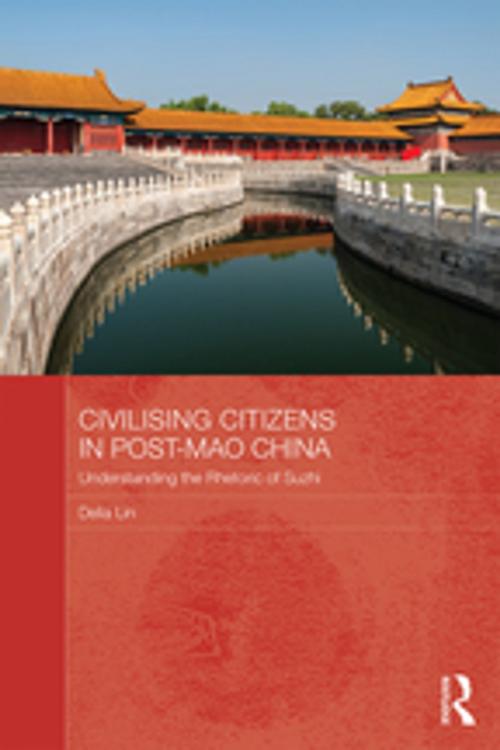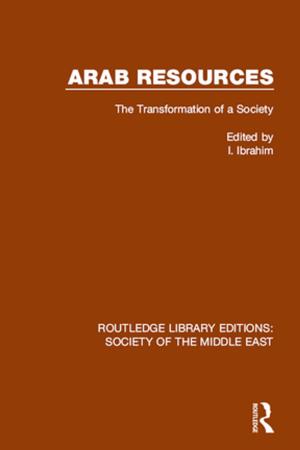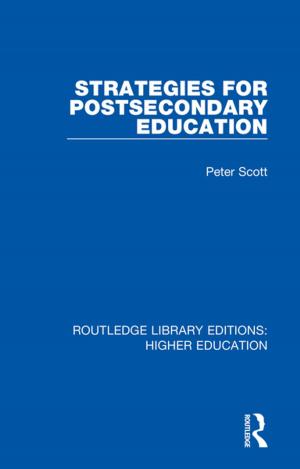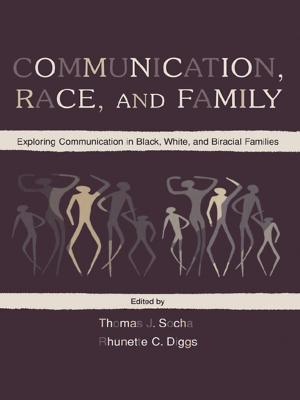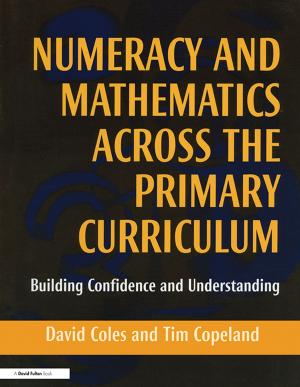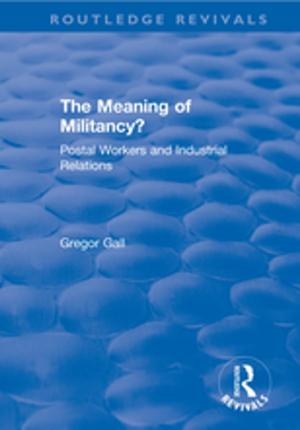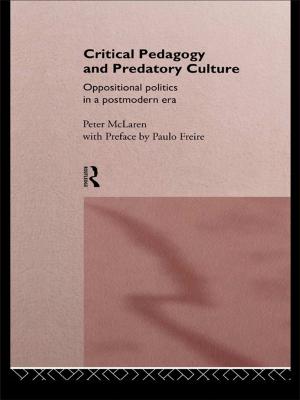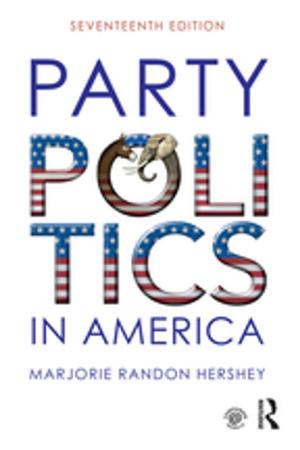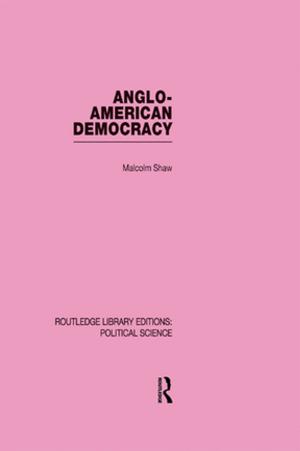Civilising Citizens in Post-Mao China
Understanding the Rhetoric of Suzhi
Nonfiction, Social & Cultural Studies, Political Science, Government, Civics, Social Science, Cultural Studies, Ethnic Studies| Author: | Delia Lin | ISBN: | 9781315437156 |
| Publisher: | Taylor and Francis | Publication: | July 14, 2017 |
| Imprint: | Routledge | Language: | English |
| Author: | Delia Lin |
| ISBN: | 9781315437156 |
| Publisher: | Taylor and Francis |
| Publication: | July 14, 2017 |
| Imprint: | Routledge |
| Language: | English |
Political discourse in contemporary China is intimately linked to the patriotic reverie of restoring China as a great civilisation, a dream of reformers since the beginning of the twentieth century. The concept and use of suzhi – a term that denotes the idea of cultivating a ‘quality’ citizenship – is central to this programme of rejuvenation, and is enjoying a revival. This book therefore offers an accessible and comprehensive analysis of suzhi, investigating the underlying cultural, philosophical and psychological foundations that propel the suzhi discourse. Using a new method to analyse Chinese governance – one that is both historical and discursive in approach – the book demonstrates how suzhi has been made into a political resource by the Chinese Communist Party-State, journeying from Confucianism to socialism. Ultimately, it asks the question: if we cannot rely on Western models of governance to explain how China is governed, what method of analysis can we use? Making use of over 200 Chinese-language primary sources, the book highlights the link between suzhi and similar discourses in post-Mao China, including those centring on notions of ‘civilisation’, ‘harmonious society’ and the 'China dream'.
As the first book to provide an in-depth study of suzhi and its relevance in Chinese society, Civilising Citizens in Post-Mao China will be useful for students and scholars of Chinese studies, Chinese politics and sociology.
Political discourse in contemporary China is intimately linked to the patriotic reverie of restoring China as a great civilisation, a dream of reformers since the beginning of the twentieth century. The concept and use of suzhi – a term that denotes the idea of cultivating a ‘quality’ citizenship – is central to this programme of rejuvenation, and is enjoying a revival. This book therefore offers an accessible and comprehensive analysis of suzhi, investigating the underlying cultural, philosophical and psychological foundations that propel the suzhi discourse. Using a new method to analyse Chinese governance – one that is both historical and discursive in approach – the book demonstrates how suzhi has been made into a political resource by the Chinese Communist Party-State, journeying from Confucianism to socialism. Ultimately, it asks the question: if we cannot rely on Western models of governance to explain how China is governed, what method of analysis can we use? Making use of over 200 Chinese-language primary sources, the book highlights the link between suzhi and similar discourses in post-Mao China, including those centring on notions of ‘civilisation’, ‘harmonious society’ and the 'China dream'.
As the first book to provide an in-depth study of suzhi and its relevance in Chinese society, Civilising Citizens in Post-Mao China will be useful for students and scholars of Chinese studies, Chinese politics and sociology.
